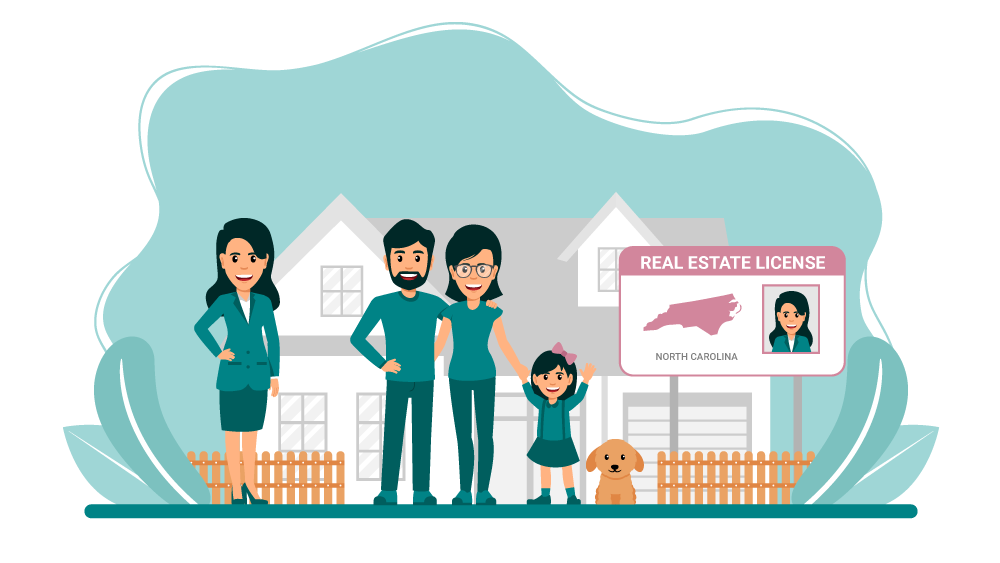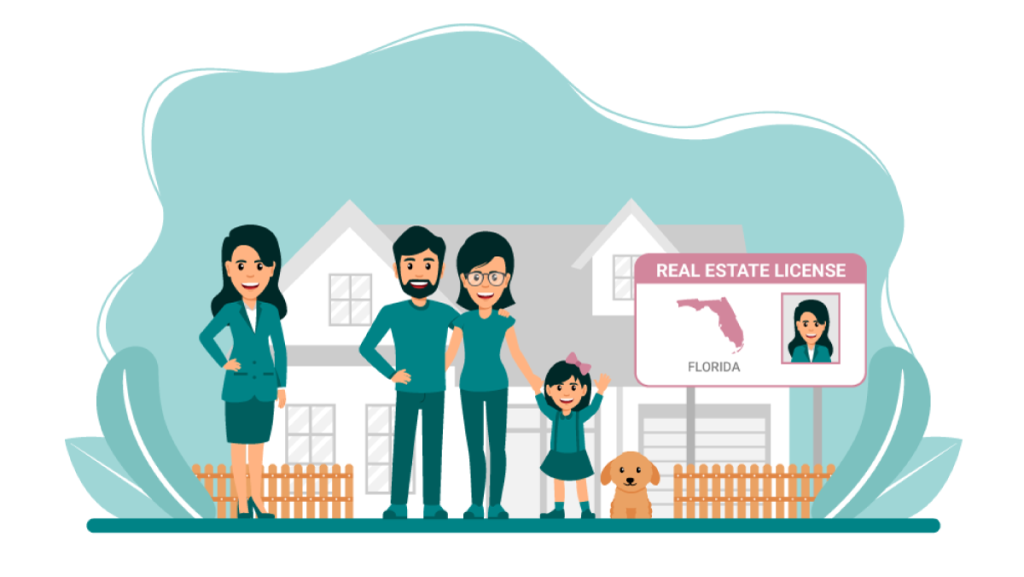The real estate business is always going to be in demand. It is a great career path for those that are willing to be dedicated and work hard. No matter how the economy evolves, there will always be a need for housing, creating great opportunities for professionals. Getting started as a real estate agent involves planning and devotion as you go through the steps necessary to become a working expert.

To work as a real estate agent in Nevada, you’ll need to start with obtaining a real estate license. A particular set of steps are in place to go through the process of becoming a licensed real estate agent. Although the process is straightforward, you’ll have to meet all the requirements and pay the appropriate fees.
This article will cover the process of getting your Nevada real estate license. You’ll become familiar with what to expect as far as costs, exams, requirements, and other factors involved in acquiring a license.
Let’s dive right in!
Requirements To Obtain a Nevada Real Estate License
The general requirements in Nevada to obtain a real estate license can be summarized in five steps as follows:
Step 1: Legal Status and Minimum Education
To become a real estate agent, you must be 18 years of age or older, be a U.S. citizen or permanent resident, as well as have a high school diploma or equivalent education.
Step 2: Complete 90 Hours of Education in a Nevada-Approved School
You must enroll and complete 90 hours of real estate courses approved by the Nevada Real Estate Division. Certificates of completion for the following curriculum must be submitted with your application:
- Three college credits or 45 hours of Principles in Real Estate
- Three college credits or 45 hours of Law in Real Estate covers at least 18 hours of law pertaining to Nevada.
- Pre-licensing courses, which may also be accepted from another state that recognizes reciprocity.
Nevada requires 30 hours of post-license education.
There are many options when it comes to completing your real estate education. You’ll have to choose a Nevada real estate school that is approved by the state of Nevada. Many offer different package options that vary in price and support.
Step 3: Complete a Background Check and Fingerprinting
You must submit a background check and fingerprints to the Nevada Department of Public Safety. The state requires real estate agents to go under proper investigation to rule out particular crimes that can disqualify them from working in the industry.
As a real estate license applicant, you will not be approved if you have prior offenses such as grand larceny or theft convictions. The state of Nevada provides a list of approved vendors that can perform background checks and fingerprints. There are multiple locations statewide for your convenience where you’ll be able to make an appointment or, in some cases, walk-in.
You’ll have to submit your real estate agent application within 90 days of your background check and fingerprinting. Otherwise, you’ll be required to get them again and pay new fees. It’s important for you to time everything correctly to avoid delays and to have additional expenses.
Step 4: Pass the Nevada Real Estate Salesperson Licensing Exam
Your school will prep you with the necessary knowledge and practice to pass the Nevada Real Estate Salesperson Licensing Exam. You will have to register for the exam on a provider’s website or office. Any quality school will guide you on the timing and process of the exam registration.
You will find it helpful to get additional tutoring if you feel necessary. The exam can be tricky as there are multiple correct answers, and you will have to detect the best answer. Even misreading one word can change the whole question, which is why you must take your time and read all questions very carefully.
When applying for a real estate license in Nevada, you must have completed the Nevada and National exams within the last 12 months. You must show proof of passing the exam once you apply for your license. If you are licensed in another state, you don’t have to retake the national exam, but you must show proof of the results.
Step 5: Apply for the Nevada Real Estate Salesperson License
Nevada’s fee for applying for a license is $125, and you must have all requirements complete to apply. You’ll complete form 549 of the State of Nevada Department of Business and Industry Real Estate Division. Be sure you have proof of completing all the requirements to submit your license. A good real estate school will guide you through the whole process.
What to Expect From the Nevada Real Estate Exam
The Nevada salesperson real estate exam encompasses two portions, 80 general practice questions and 40 questions of Nevada state law. The score is on a scale from 0 to 100 with a passing score of 75.
You’ll have a total of four hours to complete a computer-generated exam. Two forms of identification that show your signature will be required; one of them must be government-issued. You may enter the exam with a basic calculator with advanced functions where you can store notes.
The general section of the exam covers the following topics:
- Real terminology, characteristics of properties, ownership, restrictions, and transfer.
- Forms of ownership, transfer, and recording of title.
- Property appraisal and value.
- Real estate agency and contracts.
- Real estate practice as an agent.
- Environmental topics and disclosures related to the property.
- Settlement and financing of property
- Real estate calculations and mathematics.
The state section of the exam includes the following:
- Powers and duties of the commission
- Requirements for licensing
- Agency
- License practice
- Disclosures
- Contracts
- Recordkeeping
- Special topics
- Tips For Exam Day
The most important factor for having a good exam day is staying calm. Visualize yourself passing and working as a licensed real estate agent. These tips will help you achieve your goal:
- Do as many practice exams as you can. Practice makes perfect!
- Start with questions that are familiar to you. Leave the more difficult questions for the end.
- Before reading the question, review all the answers first. You’ll capture key vocabulary and concepts that will help you understand the question better.
- Once you answer a question, don’t go back and change the answer. Follow your gut and trust that your first answer is the correct one.
- Focus on each answer and don’t occupy your mind with your overall performance. Take it one step at a time.
Nevada State Reciprocity
In the United States, the real estate boards and commissions allow licensed real estate agents of one state to become licensed in other states more easily. This is great news if you plan to work in multiple states or relocate anywhere.
The state of Nevada has agreements reciprocity for real estate salesperson license with the states below:
| Arizona | Louisiana |
| Colorado | Minnesota |
| Delaware | South Carolina |
| Idaho | Texas |
| Illinois | Utah |
| Indiana | Washington |
| Iowa | West Virginia |
| Kentucky |
Once you’re ready to apply in Nevada, check the state policy if this list has been updated. Your state license in your current state must be in good standing.
Continuing Education (CE) and License Renewal
To maintain a Nevada real estate salesperson license, you will have to renew it every four years. You will have to complete 24 hours of continued education every two years, including 12 hours of core courses (three on ethics, three on contracts, and three on laws and legislation). You must also complete 12 hours of electives. You must attend a classroom setting for at least 12 of the 24 continuing education hours, and the rest may be taken online.
Nevada’s Different Types of Real Estate Licenses
As you get involved in Nevada real estate’s dynamic industry, you’ll want to understand the whole picture. You’ll find three types of Nevada real estate licenses in the market:
- Agent/Salesperson License
- Broker-Salesperson License
- Broker License
According to each type of license, you’ll be able to perform different functions. In the state of Nevada, you will find that each license works as follows:
1. Agent/Salesperson License
This type of license is the basic requirement for representing sellers and buyers under the law for housing market transactions. The license requires that the individual complete 90 hours of real estate education covering basic principles and national and state laws. Although you will facilitate real estate transactions, you will have to work under the authority of a Nevada real estate broker.
2. Broker-Salesperson License
To obtain this type of license, a person has to complete 64 college credits and eight years of industry experience. Individuals can take the real estate broker exam to manage a branch office. After completing two years of experience, a person will be able to become a broker. Those looking to get on a fast-track in the industry may choose to take this exam first and complete their two years of experience instead of obtaining the agent/salesperson license.
3. Broker License
Individuals that obtain this license are allowed to work independently and hire agents to work under their license. This is ideal for those looking to open their real estate agency. It requires you to work as an agent/salesperson or broker-salesperson full-time for at least two years. You will also need to complete a 45-hour broker management course.
All three types of Nevada licenses require individuals to renew them every two years.
How to Get Your Real Estate License Faster
When you decide to get your real estate license, you’ll have a long-term plan that details the timeline. If you put some thought into it, you’ll be sure to have a smooth career transition. There are some tips to follow if you want to make the process of getting your real estate license quicker; let’s review them below:
- Select a Broker: Once you’re ready to work as a real estate agent, prospect the companies in your area that you think you might want to work with. In the state of Nevada, you need to work under an employer broker. The employer takes care of your daily expenses such as insurance covering omissions and errors, overhead costs of the business, internet service, and other expenses you’ll incur as you conduct business.
To begin getting your license, you will be required to work under a broker who will offer their supervision, knowledge, experience, and Nevada real estate training. They will sign off on your license application.
Brokers incur expenses that facilitate real estate agents to carry-out transactions. Every month, you are required to pay a desk fee to cover the services a broker provides.
Each broker may have different fees, which is why it is wise to prospect a few options and weigh the pros and cons of the employers you’re considering. The typical fee charged by brokers can range anywhere from $25 to $500, but there are some cases where it runs high in the $1,000 range. Find a broker that recognizes the challenges new real estate agents have and is willing to accommodate a fee that helps you take off on your career.
- Gather All Your Documentation: After you research which documents you need, make sure everything is organized and kept in a place where you can easily retrieve what you need at any particular time. Check to see if there are any pieces of identification or other documents that are expired, and be sure to update them.
Double-check your list of requirements. Once you determine exactly what you need, having everything together in one place will ensure you are ready to go when it is time to apply.
- Get a Criminal History Report: Even if you know you haven’t committed any crimes, identify theft does happen. Getting a background check ahead of time will allow you to fix an incorrect report with the appropriate agencies. This rarely happens, but it is a great relief to know exactly what your background check will show before you apply for your real estate license. It is just another step to ensure your application proceeding goes as smoothly as possible.
- Prepare a Checklist with a Timeline: Besides having all your documentation ready, it is important to know that all your documents have the correct date on them. Some items need to be obtained within 90 days of your application. By making a timeline, you’ll be more likely to meet all your requirements within the allotted time.





